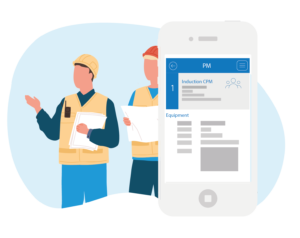The different types of property management
Do you know the different types of property management and how they each service their respective corners of the property market?
Property management is a multifaceted field that encompasses the management and operation of various types of properties. From residential homes to commercial spaces and specialized facilities, different categories of property management require specific expertise to effectively oversee their unique requirements. Understanding the distinct nature, responsibilities, and property management problems of each type is crucial for property owners, investors, and aspiring property managers alike.
At MRI Software, we provide property management software designed to streamline your agency’s processes, data collection, and customer relations management. Our innovative property management solutions transform the way you do business — taking your services to a whole new level.
Property Management Software
Multi-discipline technology for property owners, investors and occupiers.

Here are the 4 main types of property management and how they each impact the property market.
4 Main Types of Property Management
There are four primary types of property management: residential property management, commercial property management, industrial property management, and special purpose property management:
- Residential property management focuses on managing residential properties, such as apartments, houses, and condominiums.
- Commercial property management involves the management of commercial properties, including office buildings, retail spaces, and industrial complexes.
- Industrial property management deals with the management of industrial properties, such as warehouses and manufacturing facilities.
- Special purpose property management is concerned with managing properties that serve a specific purpose, such as healthcare facilities, educational institutions, and recreational centers.
Each type of property management has its own unique set of responsibilities and challenges.
Residential Property Management
Residential property management involves the operation, control, and oversight of residential properties on behalf of property owners. It encompasses a wide range of tasks and responsibilities, all aimed at ensuring the smooth functioning and profitability of the properties. From finding and screening tenants to handling maintenance requests and financial management, residential property management plays a crucial role in the real estate industry.
One of the primary responsibilities of residential property management is tenant acquisition and retention. Property managers are responsible for marketing vacant units, overseeing tenant screenings, and selecting reliable and suitable tenants. They handle lease agreements, collect rent payments, and enforce lease terms, ensuring a harmonious landlord-tenant relationship.
Additionally, property managers are responsible for addressing tenant concerns and providing timely solutions to maintain tenant satisfaction and encourage lease renewals.
Maintenance and repairs are another essential aspect of residential property management. Property managers coordinate and oversee regular maintenance tasks, such as landscaping, cleaning, and general repairs. They also handle emergency situations, such as plumbing issues or electrical failures, promptly and efficiently. By ensuring the proper upkeep of the property, property managers help maintain its value and attractiveness to tenants.
Financial management is a crucial component of residential property management. Property managers handle rent collection, budgeting, and financial reporting. They keep track of income and expenses, manage operating costs, and provide property owners with detailed financial statements. By maintaining accurate records and implementing effective financial strategies, property managers help property owners maximise their return on investment.
Furthermore, residential property management involves compliance with legal and regulatory requirements. Property managers must stay up to date with local, state, and federal laws governing rental properties, including fair housing regulations and eviction procedures. They ensure that the property and its operations adhere to these regulations, mitigating potential legal risks for property owners.
Commercial Property Management
Commercial property management involves the administration, operation, and oversight of commercial properties, such as office buildings, retail spaces, and industrial complexes. It encompasses a broad range of responsibilities aimed at maximizing the value and profitability of the properties while meeting the needs of tenants and property owners. From lease management and tenant relations to facility maintenance and financial management, commercial property management is a critical aspect of the real estate industry.
One of the primary responsibilities of commercial property management is lease management. Property managers are involved in all aspects of leasing, including marketing available spaces, screening potential tenants, negotiating lease agreements, and handling lease renewals. They ensure that lease terms are favorable for both parties, enforce lease provisions, and collect rent payments in a timely manner. Effective lease management is crucial for maintaining high occupancy rates and maximizing rental income.
Tenant relations play a significant role in commercial property management. Property managers act as the main point of contact for tenants, addressing their concerns, resolving conflicts, and facilitating effective communication between tenants and property owners. They strive to maintain positive relationships with tenants to encourage lease renewals and minimize tenant turnover. By understanding and meeting the needs of tenants, property managers contribute to the overall satisfaction and success of the property.
Maintenance and facility management are vital aspects of commercial property management. Property managers are responsible for ensuring that the property is well-maintained and meets safety and regulatory standards. They coordinate routine maintenance, repairs, and renovations, as well as handle emergency situations promptly. By proactively managing the physical aspects of the property, property managers enhance its appeal, functionality, and value.
Financial management is another critical component of commercial property management. Property managers handle rent collection, expense management, budgeting, and financial reporting. They analyze financial data, monitor operating costs, and provide property owners with regular financial statements. By implementing effective financial strategies and ensuring accurate record-keeping, property managers help property owners achieve their financial objectives.
Additionally, commercial property managers are responsible for ensuring compliance with legal and regulatory requirements. They stay informed about zoning laws, building codes, safety regulations, and other legal obligations. Property managers ensure that the property and its operations adhere to these regulations, minimizing legal risks for property owners.
Industrial Property Management
Industrial property management involves the management, operation, and oversight of industrial properties, including warehouses, manufacturing facilities, distribution centers, and industrial parks. It encompasses a variety of tasks and responsibilities aimed at ensuring the efficient operation and optimization of these properties. From tenant relations and lease management to facility maintenance and operational efficiency, industrial property management is a crucial aspect of the real estate industry.
One of the primary responsibilities of industrial property management is lease management. Property managers handle the leasing process, including marketing available spaces, screening potential tenants, negotiating lease agreements, and managing lease renewals. They ensure that lease terms align with the unique needs of industrial tenants, such as storage requirements, loading docks, and access to transportation infrastructure. By effectively managing leases, property managers maximize occupancy rates and rental income.
Tenant relations play a significant role in industrial property management. Property managers serve as a liaison between tenants and property owners, addressing tenant concerns, facilitating communication, and resolving any issues that may arise. They work closely with industrial tenants to understand their specific operational needs and ensure that the property meets those requirements. By maintaining positive tenant relationships, property managers enhance tenant satisfaction and encourage lease renewals.
Maintenance and facility management are vital aspects of industrial property management. Property managers oversee routine maintenance, repairs, and capital improvement projects to ensure the efficient and safe operation of industrial properties. They manage equipment maintenance, coordinate with contractors, and implement preventive maintenance programs. Industrial property managers also ensure compliance with safety regulations and environmental standards, maintaining a secure and sustainable work environment.
Operational efficiency is a key focus of industrial property management. Property managers strive to optimize the use of space, streamline workflows, and improve logistics within industrial properties. They work closely with tenants to identify opportunities for process improvement and cost reduction. By implementing effective operational strategies and staying updated on industry trends, property managers enhance the competitiveness and profitability of industrial properties.
Financial management is another critical component of industrial property management. Property managers handle rent collection, expense management, budgeting, and financial reporting. They analyze financial data, monitor operating costs, and provide property owners with regular financial statements. By implementing sound financial strategies and controlling expenses, property managers help property owners maximize their return on investment.
Special Purpose Property Management
Special purpose property management involves the management and operation of properties that serve a specific, unique, or specialized purpose. These properties may include healthcare facilities, educational institutions, recreational centers, religious buildings, and other specialized properties. Special purpose property management requires specialized knowledge and expertise to meet the unique requirements and regulations associated with these properties.
One of the primary responsibilities of special purpose property management is understanding and complying with industry-specific regulations and standards. Different types of special purpose properties have specific legal and regulatory requirements that must be followed. Property managers need to stay up to date with these regulations, ensuring that the property meets all necessary standards for safety, accessibility, and functionality. Compliance with regulations is essential to provide a safe and appropriate environment for the occupants and users of the property.
Maintenance and operations of special purpose properties are also key aspects of special purpose property management. Property managers are responsible for coordinating and overseeing maintenance tasks specific to the property type. For example, in a healthcare facility, property managers may need to ensure proper sterilization procedures, medical waste management, and regulatory compliance related to patient care. Similarly, in educational institutions, property managers may oversee safety measures, classroom equipment maintenance, and grounds upkeep. The goal is to maintain the functionality and integrity of the property while meeting the specialized needs of its users.
Tenant and occupant relations are crucial in special purpose property management. Property managers need to understand the unique needs and requirements of the occupants or users of the property and provide appropriate support and services. This could include coordinating with healthcare professionals in a medical facility or working closely with administrators and teachers in an educational institution. Building positive relationships with occupants and addressing their concerns or requests contributes to the overall satisfaction and success of the property.
Property Management FAQs
Contact MRI Software
At MRI Software, we create smart property management CRM software designed to streamline, automate, and manage all types of this complex and fast-paced profession. To find out more about how our solutions can help your agency, please request a demo or contact us today at 1 800 321 8770.
Cut Through Data Chaos with MRI Agora Insights
Today’s commercial property owners and operators are using more technology systems than ever before, yet challenges still exist around data visibility, integrations, and automation. It’s no secret that the real estate industry generates vast quantiti…

